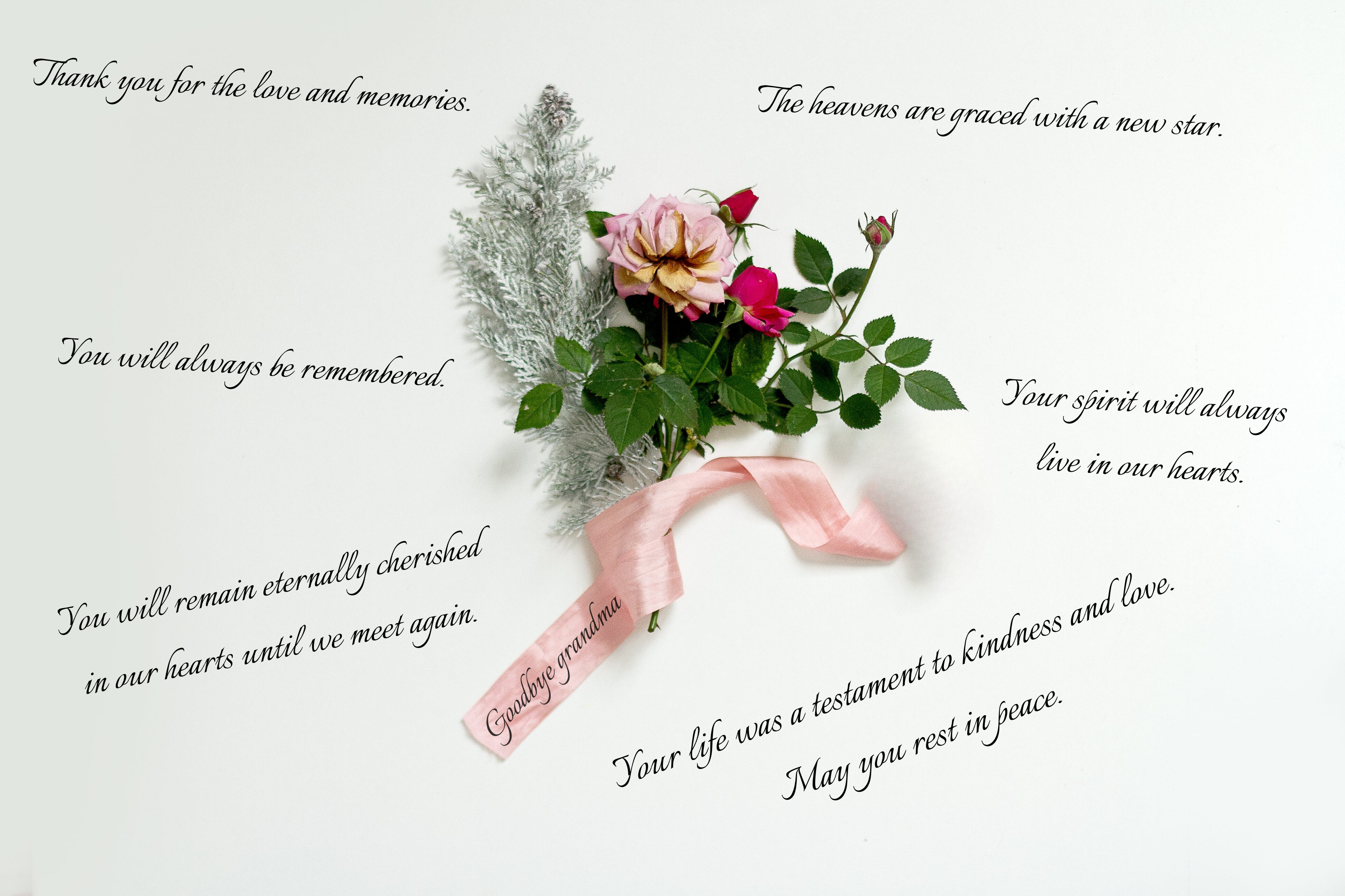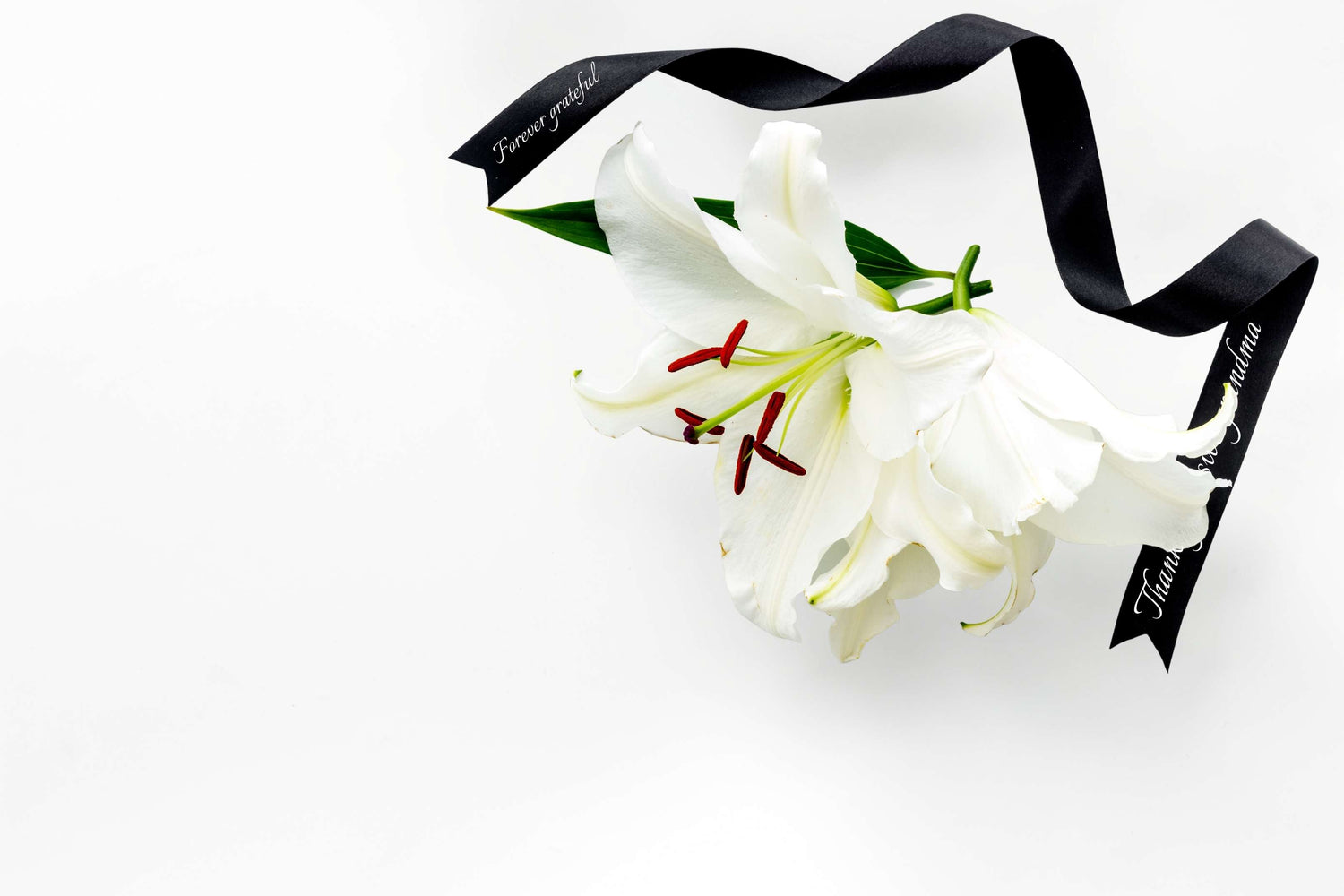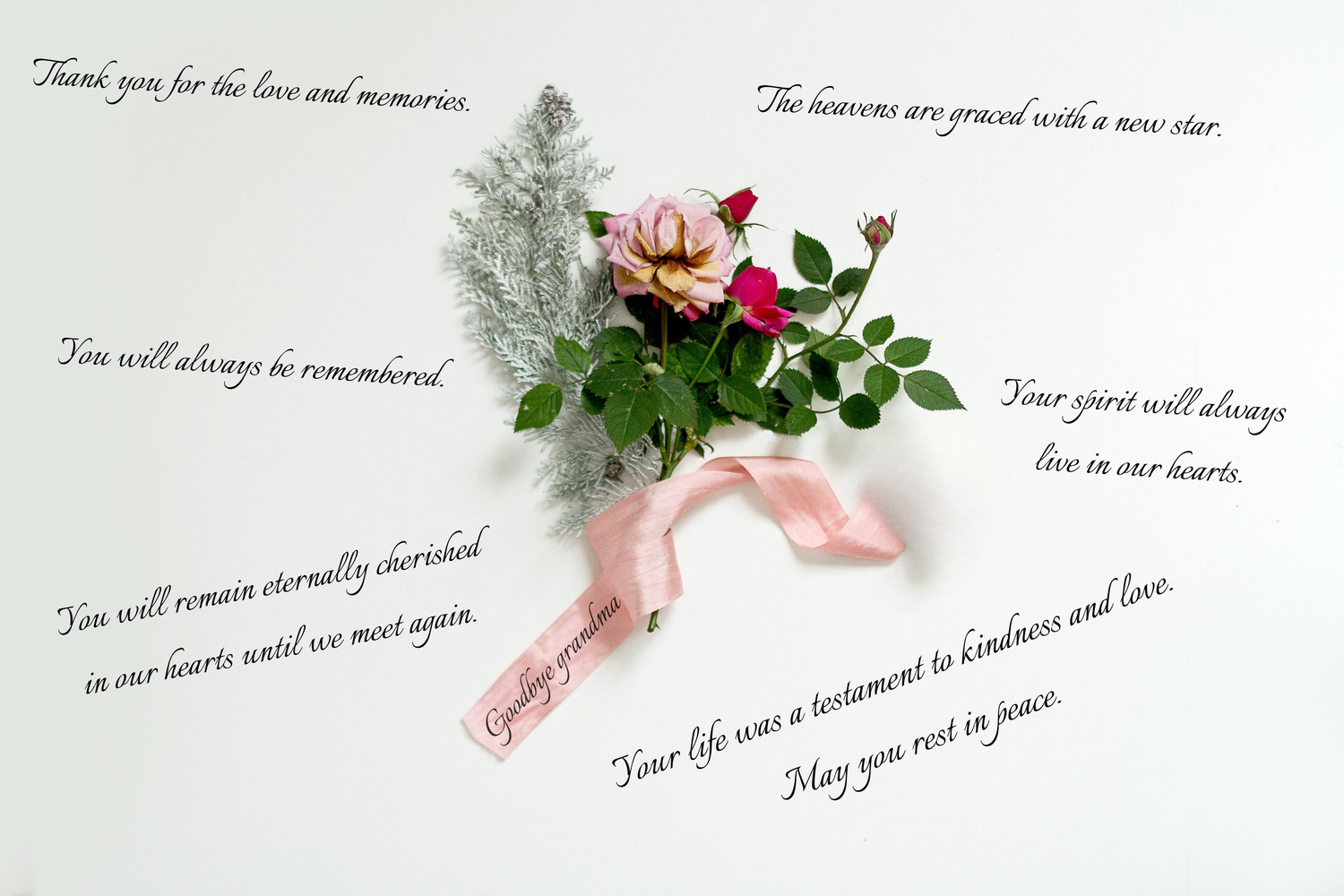
What should you write on a funeral bouquet?
A Personal Text for a Funeral Bouquet
A personal text for a funeral bouquet can be a deeply felt and meaningful way to remember a loved one who has passed away. When faced with the loss of someone dear, we wish to find the right words to express our grief, love and respect. A personal text is not merely a gesture—it carries great emotional weight and can bring comfort both to those who write it and to those who read it.
Writing a personal text takes time and reflection. It is about finding the words that capture the essence of your relationship with the deceased. Begin by reflecting on the moments that have left an impression on you—perhaps a special memory, a time that brought you laughter, or a moment when the departed offered support and love. Focusing on these memories can help you create a text that is both moving and genuine.
A good personal text can be short or long, but remember that it need not be lengthy to be meaningful. Sometimes just a few well-chosen sentences can touch the heart. The most important thing is that the words come from the heart. Consider including a warm greeting such as “Dear” or “Beloved” to lend an intimate tone. Ending with a sentence like “you will always be missed” or “rest in peace” can provide a beautiful conclusion that underlines your love and longing.
It is also worth noting that writing this text can be a healing process. It gives you the opportunity to work through your grief and acknowledge the significance the deceased had in your life. Putting your feelings into words may help you find peace in a difficult time. In this blog we explore how to create a personal text for funeral bouquets that honours the departed while also providing comfort to those left behind.
We will also offer inspiration through examples and tips to help you formulate your own words. The aim is to create a text that resonates with your heart and soul, and that can become a treasured memory for those who remain. Whatever you choose to write, your text will be a beautiful expression of the love you hold for the departed, and will help keep their memory alive in the hearts of those who loved them.
Texts for a Funeral That Can Be Used on Both Cards and Ribbons

10 Suggestions for a Short Text on a Funeral Bouquet
Finding the right words for a final farewell can be challenging. Here are 10 suggestions for short and meaningful texts that can express your feelings:
• Rest in peace.
• Until we meet again.
• Sleep peacefully.
• A final farewell.
• Thank you for everything.
• Forever missed.
• Beloved and never forgotten.
• You will always be in our hearts.
• Your love will live on.
• We will always remember you.
It can be challenging to find the right words for a funeral bouquet, as the text must reflect our feelings and serve as our final goodbye to the departed. Sometimes a few carefully chosen words are enough to express what is essential in a simple and moving way. Short texts can create a strong message that speaks directly from the heart, which is why they are often a popular choice in these situations.
There are also times when you might feel the need to say more—perhaps to share a special memory, express deep gratitude, or offer a more personal farewell. In these cases, a longer text can allow you to include more thoughts and emotions. Below are examples of longer texts to help you put into words the difficult and profound feelings associated with a final goodbye.

10 Suggestions for a Longer Text on a Funeral Bouquet
Here are 10 ways to express your final farewell with a longer text on a funeral bouquet:
- You were a wonderful [mother and grandmother], and we will love you forever.
- Rest in peace, dear [name]. You will always be in our hearts.
- Heaven has been gifted with a new, beautiful star.
- With deepest sympathy and warm thoughts in this difficult time.
- Our thoughts are with you. May [name] rest in peace.
- Loving thoughts and condolences to the whole family.
- Thank you for the beautiful memories, dear [name]. Rest in peace.
- Our deepest sympathy during this time of grief.
- With love and respect, we say farewell to [name].
- May [name] find peace. Our thoughts are with you.
Try our ribbon designer
-
Bouquet Ribbon with Print
Regular price From €12,87Regular priceUnit price / per -
ECO Satin Bouquet Ribbon with Print
Regular price From €18,96Regular priceUnit price / per -
Bouquet Ribbon with Print - Inquire
Regular price From €12,87Regular priceUnit price / per
What are the rules for funeral bouquets?
Size and Relationship
A general rule of thumb is that the closer you were to the deceased, the larger the funeral bouquet should be. If you were part of the immediate family, it is expected that you choose a larger bouquet or wreath. Friends and more distant acquaintances, on the other hand, may opt for smaller arrangements. This is not a strict rule, but a common practice used to show respect.
Colours and Flowers
The choice of colours in a funeral bouquet plays an important role. Traditionally, subdued shades such as white, cream or pink are chosen, as they convey calm and respect. However, the bouquet’s colours can also reflect the personality of the deceased, if appropriate. Generally, it is advisable to avoid overly bright and highly colourful flowers, as they may seem unsuitable for a time of mourning. A single-coloured or subtly toned bouquet ensures a respectful and dignified farewell.
Ribbons and Cards
Although it is not necessary to add a ribbon or card to a funeral bouquet, it can be a beautiful and personal way to send a final farewell to the deceased. A ribbon may carry a short message or the names of the closest relatives as a final goodbye. When choosing to include a ribbon, it is traditional to list family members’ names in a specific order: first the eldest, then the youngest, and for couples, the woman’s name before the man’s.
It is also common to avoid special characters or unnecessary embellishments on the ribbon, in order to keep the message simple and respectful. Messages on cards or ribbons are often short and personal—such as “A final farewell” or “Rest in peace”—but may also include more personalised greetings that reflect your relationship with the departed.



